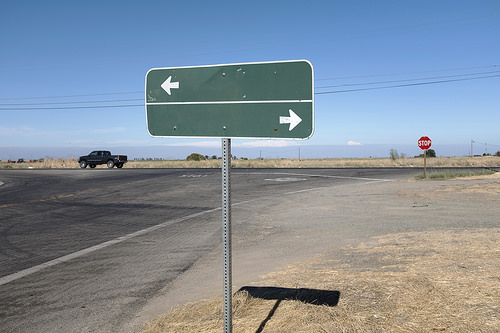Did you ever have a bad habit you gave up, only to go back to it later? If you are like virtually every other human being, you have probably done just that, likely more than once.
For example, I quit drinking several times.
In retrospect, they weren’t very serious attempts. Each time, I just stopped. No big change, only a half-hearted decision not to drink (for a while). No recovery program, no accountability, no big WHY I was quitting. Predictably, those efforts didn’t last long.
Fifteen years ago, I really stopped. I thank God for that because, with addiction, relapse is more the norm than the exception. The National Institute on Drug Abuse estimates the relapse rate as 40-60%. Psychology Today adds that 70-90% of people have at least one mild to moderate slip.
There is good and bad news for all of us, because preventing relapse can be easy, or very hard.

Preventing Relapse Can Be Easy
People committed to recovery learn self-defense mechanisms to help them avoid a relapse. If they have been paying attention, they have learned that recovery works if you work at it. They’ve seen, and likely talked to, many people who have successfully stopped whatever it was they were doing.
Hopefully, they have learned the negative consequences of their addictive habit. And, if they were working at their recovery, they have found the steps they need to take to stay sober.
But, unfortunately, it doesn’t always work out that way.
I know someone named John (not his real name) who quit drinking and stayed sober for 7 years. But he relapsed a few years ago and has been relapsing over and over until recently.
Why did it happen that way with John?
Looking back, he says there was foreshadowing to his first relapse. During his sober period, he substituted other addictive habits—overspending, excessive exercise, even a compulsive fixation on recovery itself—for alcohol. Such addiction transference is actually common.
He also skimmed over the first 3 of the Twelve Steps—the ones on surrendering your will to God. And he never dealt with some of his “stinking thinking” (such as self-absorption and pride) that was part of his addictive behavior. Which means he wasn’t prepared when temptation came along.
Relapses kept happening for many of the same reasons. And he was embarrassed for people to know he had messed up, which kept him from getting back into a consistent recovery program.
Maybe John will figure it out this time. We’ll see …

Preventing Relapse Can Be Hard
Addiction is cunning, baffling, and powerful. It is an insidious and relentless disease that can be hard to beat if not treated with a rigorous recovery program.
When people relapse, they are often embarrassed to admit what they have done, so they avoid going back to the recovery meetings that are precisely what they need to get better. They may see themselves as a failure, which leads to even deeper levels of shame and isolation.
So they repeatedly turn back to the easiest way they know to feel better for a while.
If you or someone you know wants to prevent a relapse, there are danger signs to watch out for:
- They aren’t in recovery – They don’t go to meetings and have no sponsor or accountability.
- They don’t live the Twelve Steps – Surrender, self-awareness, forgiveness, prayer and meditation, and service to others are meant to be a way of life, not just reading material.
- Stinking thinking remains – Rather than dealing with their issues, they try to tough it out.
- Over-confidence sets is – They don’t fear the power of addiction and become complacent.
- A life change threatens – Divorce, kids leaving home, retirement, or other life events can disrupt a recovery, or depression or anxiety can become rationalization for a relapse.
- They stop doing what keeps them sober – They forget critical success factors about living a healthy and integrated lifestyle, maintaining self-awareness, being connected to others, practicing life management skills, and having purpose and a plan for the future.
People can prevent relapse. But they have to want to, and be willing to do what it takes to avoid it.
Lessons Learned on Preventing Relapse
Recovery can teach us some valuable lessons for preventing relapse. Here are some of them:
- Just stopping is not enough; you must do something different than what you did before.
- You need to be all in for your recovery, and it can’t be a half-hearted or casual attempt.
- It requires a holistic, integrated approach with spiritual, emotional, and personal aspects.
- Recovery is a lifestyle, a process, and a way of thinking rather than only a set of meetings.
- The things that work to prevent addiction the first time also work for preventing relapse.
- Get through the first day, and then do that again one day at a time for the next 90 days.
- Relapse does not mean failure; it can be a learning point on the journey to well-being.
- You can always have hope because addiction is treatable and relapse is preventable.
Relapse happens, but it doesn’t have to happen to you or your friends or family members. You can stop that cycle, but it takes an intentional effort, and doing the next right thing one day at a time.
Question: Who do you know who could benefit from learning about preventing relapse?
Action: If you know someone who relapsed, encourage them to make it through today.
Photo by Bs0u10e0  Photo by MacBeales
Photo by MacBeales  Photo by Robert Couse-Baker
Photo by Robert Couse-Baker 

